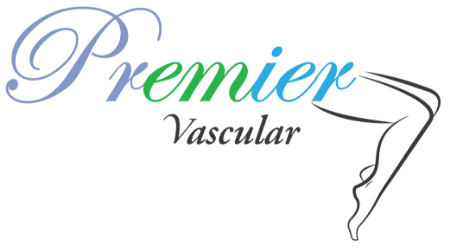Chronic venous insufficiency (CVI), also known as venous stasis, is a common condition that may affect as many as one in 20 adults in the United States. While not generally considered life-threatening, CVI typically affects people over 50 and can cause increasingly debilitating symptoms that may impact your overall mobility and quality of life.
Dr. Nirav Patel, who leads our team at Premier Vascular in Yonkers and Jackson Heights, New York, offers the latest in minimally invasive, highly effective treatments for CVI and other conditions that affect your veins and arteries.
Check out these facts about chronic venous insufficiency and the treatments our team provides to restore healthy blood flow in your leg veins.
What are the effects of chronic venous insufficiency on your legs?
Chronic venous insufficiency involves the blood vessels called veins that carry blood from the legs back to the heart. One-way valves in veins regulate the flow and help “used” blood circulate continuously back toward the heart and lungs for an oxygen refill.
Healthy valve action is especially crucial in your leg veins since blood traveling through these vessels must move upward against gravity. Chronic venous insufficiency occurs when weakened valves or damaged vein walls allow blood to flow backward and pool in the veins.
The increased pressure and fluid buildup related to the pooling blood results in:
Leg swelling (edema), typically worse in the lower legs, ankles, and feet
Nonhealing skin sores (venous ulcers)
Skin changes, including thickened and discolored skin patches
Increased number of varicose veins
Achy tight sensation in the legs
Cramping calf pain, often occurring at rest
Burning or tingling discomfort in the legs
Red, crusty, or weepy skin (stasis dermatitis)
Cellulitis (general skin inflammation and infection)
CVI is a progressive condition, typically causing subtle symptoms initially that tend to worsen over time without treatment.
What causes chronic venous insufficiency?
It’s not clear why some people develop CVI and others don’t. However, certain factors do increase pressure in your leg veins, elevating your risk of CVI, including:
Excess weight
Pregnancy
Smoking
Lack of physical activity
Occupations that require prolonged sitting or standing
History of deep vein thrombosis (DVT) or blood clot
Varicose veins are a common symptom of CVI and may also be a driving factor for developing the condition. People with a family history of varicose veins or venous insufficiency are also at greater risk of developing CVI.
How do you treat chronic venous insufficiency?
CVI treatments at Premier Vascular are based on your symptoms and the results of a thorough evaluation that may include painless, in-office diagnostic studies such as a vascular ultrasound to assess the health of arteries and veins in your legs.
Your personalized treatment strategy may include increased physical activity, usually a walking program, to improve strength in your calf muscles. Your leg veins rely on the healthy contraction of your calf muscles to help move blood upward toward the heart.
Other at-home therapies Dr. Patel may recommend include compression stockings, maintaining a healthy weight, and elevating your legs periodically throughout the day to reduce swelling. In addition, skin changes or venous ulcers related to CVI may require advanced wound care to prevent infection and worsening disease.
To restore healthy circulation to your leg veins, Dr. Patel may suggest minimally invasive procedures such as endovenous radiofrequency ablation or VenaSeal™ to close the damaged vein. Performed in the office for your convenience, these essentially painless therapies offer excellent results with minimal downtime.
Schedule a visit at with us Premier Vascular today to prevent the worsening effects of chronic venous insufficiency on your overall health and mobility. Call the office or request an appointment using our secure online service. You may also find our online, three-minute vein screening helpful.




